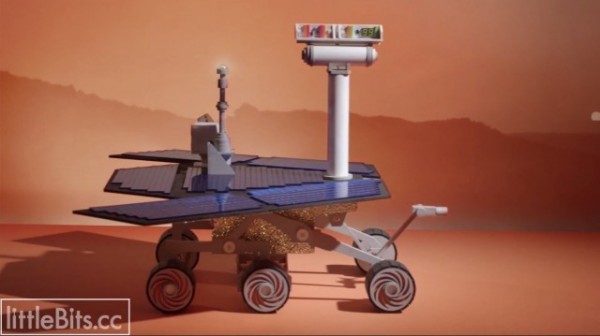
We haven't checked in with littleBits in quite some time and, honestly, it was a bit of a surprise to find the electronic tinker toys hiding in a quiet corner of the floor at Toy Fair this year. The property has grown quite a bit in the past few years. For one, it's no longer a "project" but an actual shipping product. And in the last year founder Ayah Bdeir has turned it from a great concept into an actual company with serious investors. For those of you unfamiliar with littleBits, the goal is to do for electronics what LEGO did for structural engineering. The small color coded "blocks" snap together with magnets allowing even a novice to create a functioning circuit in seconds. The magnets will only connect in one orientation, preventing you from pushing current through a component in the wrong direction and ruining it. Ayah's inspiration is not just LEGO, but object oriented programing languages that simplify building code, allowing developers to focus on the more creative aspects of software making. By doing some of the heavy logical lifting for you, littleBits hopes that potential electrical engineers and prototypers can focus on the goal rather than the minutia of laying out a breadboard or soldering resistors in place.
The latest version of the platform, v0.3, debuted just a couple of months ago and not only brings new pieces to the littleBits universe, but also adds legs to the blocks for improved stability when piecing together your projects. Currently there are four kits available: the three piece Teaser kit for $29, the seven piece Holiday kit for $49, the 10 piece Starter kit for $89 and the 14 piece Extended kit for $149. (You can also buy individual Bits for between $10 and $35.) If you're in need of inspiration there are a number of projects for you peruse on the site and the company is even considering packaging them up as pre-planned kits. Though, unlike other electronics project bundles (such as the ubiquitous BrushBot), the magnetic pieces can easily be disassembled and re-purposed if you tire of your creation. While the concept has its roots in brands like Snap Circuits, littleBits definitely provides more freedom than those single purpose offerings. For more, check out the video after the break.
Filed under: Misc
Comments








